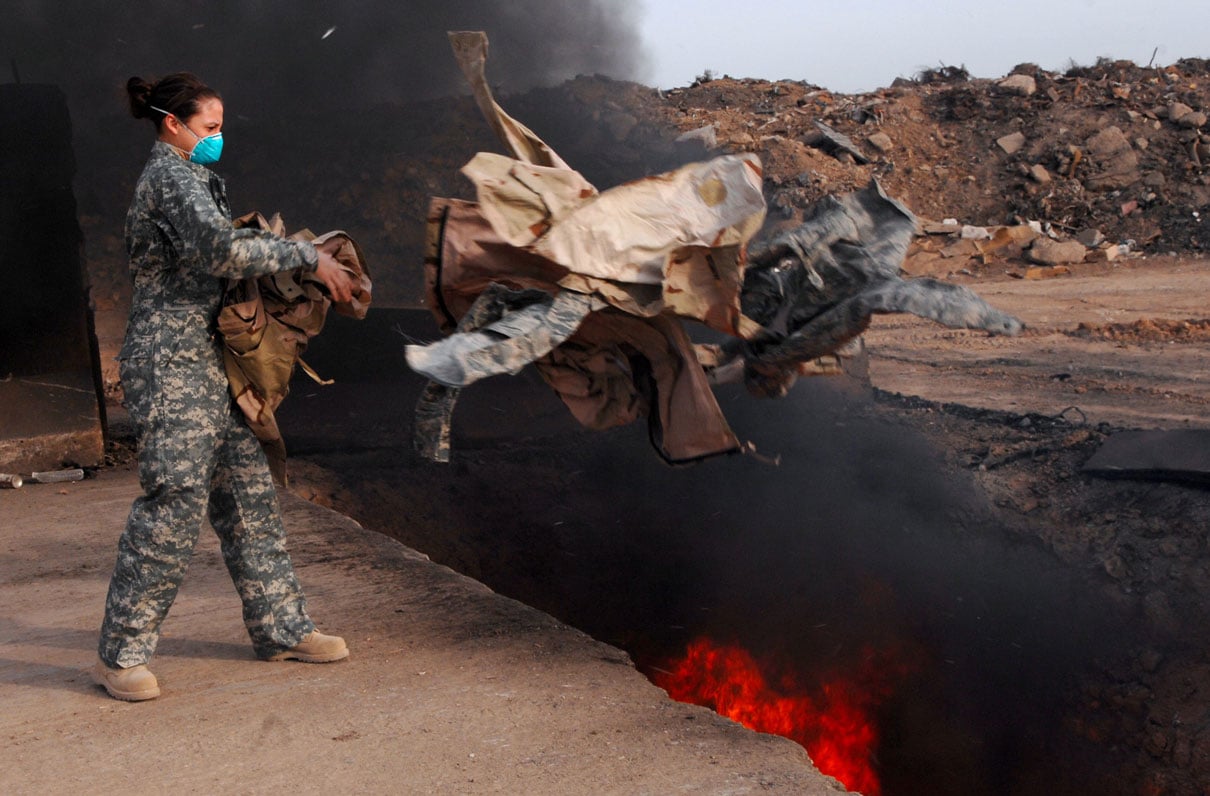Military Officers Association of America (MOAA) is mobilizing behind a bill to assign DoD responsibilities related to veterans exposed to open burn pits and toxic chemicals.
Two Army combat veterans support federal legislation would “direct the Secretary of Defense to include in periodic health assessments, separation history and physical examinations, and other assessments an evaluation of whether a member of the Armed Forces has been exposed to open burn pits or toxic airborne chemicals,” according to the text of the bill.
The legislation, H.R. 5671, Burn Pits Accountability Act, introduced by Rep. Tulsi Gabbard (D-Hawaii), an Iraq veteran, and cosponsored by Rep. Brian Mast (R-Fla.), an Afghanistan veteran and double amputee, addresses this important topic - especially to our veterans of the wars in Iraq and Afghanistan.
This is the first proposed legislation to address the burn pit issue within DoD and would mandate DoD responsibilities regarding accountability at several checkpoints before a servicemember leaves service.
MOAA strongly supports this legislation, and we are working closely with several of our partner organizations in The Military Coalition as well as with Reps. Gabbard and Mast to see it become law. Follow us at our 10 a.m. EDT news conference addressing the legislation May 17 on Capitol Hill.
If you are currently serving or a veteran who has been exposed to burn pits or other toxic chemicals and you have experienced health problems, please let MOAA know about your experience by emailing us.
More about the H.R. 5671
The bill seeks to address a problem experienced by many of my fellow veterans of Iraq and Afghanistan who have been exposed to open burn pits and other toxic chemicals while deployed and who have themselves later become afflicted with rare cancers and other health issues. These veterans, when addressing their health issues with the VA, have been consistently told it is - like was said for many years with regard to veterans exposed to Agent Orange - not supported by science.
In reality, it is also an issue of documentation and accountability, not just science. As a result, there remains a level of responsibility and accountability on the part of DoD.
Specifically toward a solution, the Burn Pits Accountability Act would evaluate the exposure of U.S. servicemembers and veterans to open burn pits and toxic airborne chemicals by:
- Requiring the Secretary of Defense to record whether servicemembers have been “based or stationed at a location where an open burn pit was used or exposed to toxic airborne chemicals, including any information recorded as part of the Airborne Hazards and Open Burn Pit Registry,” in Periodic Health Assessments (PHAs), Separation History Physical Examination (SHPEs), and Post-Deployment Health Assessment (PDHAs).
- Enrolling any servicemember who meets the above criteria in the Airborne Hazards and Open Burn Pit Registry, unless he or she opts-out.
- Requiring the secretary of defense and the Secretary of Veterans Affairs to share information relating to exposure of burn pits and toxic airborne chemicals recorded in PHAs, SHPEs, and PDHAs.
